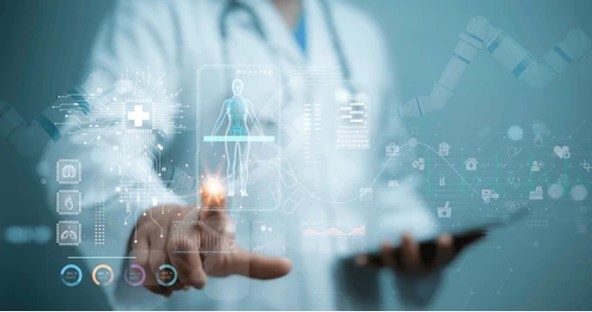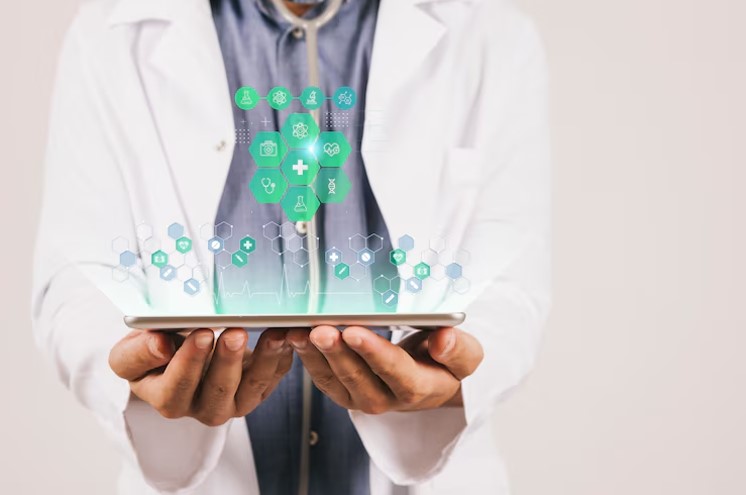Artificial intelligence (AI) is rapidly transforming various sectors, and its impact on healthcare and, specifically, pharmaceutical marketing is profound. From accelerating drug discovery to revolutionizing how pharmaceutical companies connect with healthcare professionals (HCPs) and patients, AI is reshaping the industry landscape.
How AI is Changing Healthcare
AI’s influence in healthcare extends across numerous critical areas, making processes more efficient, accurate, and personalized:
- Enhanced Diagnostics and Treatment: AI algorithms can analyze vast datasets of medical images (like X-rays, MRIs, and brain scans) to detect diseases earlier and more accurately than human analysis alone. This includes spotting subtle signs of cancer, neurological disorders, and bone fractures. AI also aids in creating personalized treatment plans by sifting through patient records and test results to suggest optimal interventions, leading to better outcomes and fewer side effects.
- Accelerated Drug Discovery and Development: Traditional drug discovery is a lengthy and expensive process. AI significantly speeds this up by:
-
- Identifying potential drug candidates: AI can analyze thousands of chemical compounds, predict their effectiveness and safety, and identify promising molecules much faster.
- Optimizing clinical trials: AI assists in patient stratification, matching patients to trials based on medical history and biomarkers, and predicting retention likelihood, thus cutting recruitment timelines and costs.
- Streamlined Operations and Administration: AI automates routine administrative tasks such as scheduling appointments, managing medical records, and processing billing. This frees up healthcare professionals to focus more on patient care. AI-powered predictive maintenance in manufacturing ensures smooth operations by identifying potential machine failures before they occur.
- Precision Medicine: By analyzing an individual’s genetic makeup, lifestyle, and environmental factors, AI enables truly personalized medicine. This means treatments can be tailored to be most effective for a specific patient, increasing efficacy and reducing adverse reactions.
- Remote Monitoring and Virtual Assistants: Wearable tech and smart monitors powered by AI track vital signs in real-time, alerting doctors to potential problems. AI-driven chatbots and virtual assistants provide 24/7 patient support, answer common questions, and guide healthcare decisions.

AI’s Impact on Pharmaceutical Marketing
The shift towards data-driven strategies is particularly evident in pharmaceutical marketing, where AI offers significant advantages:
- Personalized Marketing Strategies and HCP Engagement:
- Targeted Messaging: AI analyzes HCP prescribing behaviors, patient preferences, and market trends to create highly personalized marketing campaigns. This ensures that marketing materials resonate directly with the intended audience, increasing engagement and conversion rates. For instance, AI can identify physicians most likely to prescribe a new medication and tailor messages highlighting relevant benefits.
- CRM Enhancement: AI integrates with CRM systems to automate follow-ups, send reminders, and provide sales representatives with insights into customer preferences, leading to more personalized and effective communication.
- Optimized Sales Territory Management: AI helps optimize sales territories by analyzing factors like HCP density, prescription volumes, and geographic considerations, ensuring strategic allocation of sales efforts
- AI-Driven Content Creation and Optimization:
-
- Automated Content Generation: Generative AI tools (like large language models) can draft various marketing materials, from educational articles and white papers to social media posts and product descriptions. These tools can be trained to adhere to strict regulatory guidelines, ensuring compliance.
- Real-time Campaign Optimization: AI continuously analyzes the performance of digital advertising campaigns in real-time, automatically adjusting strategies to maximize ROI. This moves beyond traditional trial-and-error methods.
- Localization: AI can analyze country-specific regulatory guidelines, payer preferences, and linguistic nuances to ensure accurate and contextually appropriate translations and visual elements, enhancing message consistency and compliance across diverse markets.
- Predictive Analytics for Market Trends and Sales:
-
- AI’s ability to process vast amounts of historical sales data, patient demographics, and even social media trends allows it to forecast market movements with high precision. This predictive power helps pharmaceutical marketers make informed decisions about resource allocation, advertising spend, and product positioning.
- Sentiment analysis: AI can monitor social media and online forums to gauge public sentiment about specific drugs or therapeutic areas, allowing companies to adjust strategies proactively and address concerns.
- Enhanced Regulatory Compliance and Quality Assurance:
-
- In a highly regulated industry like pharmaceuticals, AI strengthens governance by detecting early risk signals and ensuring content complies with regulations from bodies like the FDA and EMA. AI tools can check dossiers, scientific literature reviews, and promotional materials for accuracy and compliance, significantly reducing errors and speeding up approval processes (Medical, Legal, Regulatory – MLR review).
Conclusion
AI is not just a technological advancement; it’s a fundamental shift in how healthcare is delivered and how pharmaceutical products are brought to market and promoted. By leveraging AI, pharmaceutical companies can develop more effective therapies, reach the right audiences with personalized and compliant messages, and ultimately improve patient outcomes. For guest bloggers, focusing on concrete examples and the tangible benefits of AI in both healthcare advancements and the strategic evolution of pharmaceutical marketing will resonate strongly with readers interested in this cutting-edge intersection.
Frequently Asked Questions (FAQs)
- How is AI specifically improving drug discovery and development for pharmaceutical companies?
AI significantly accelerates drug discovery by analyzing vast chemical databases to identify potential drug candidates and predict their effectiveness and safety much faster than traditional methods. It also optimizes clinical trials by identifying suitable patients, predicting retention rates, and analyzing trial data to speed up the development process and reduce costs.
- Can AI help pharmaceutical companies with regulatory compliance in marketing?
Yes, absolutely. AI tools can enhance regulatory compliance by quickly scanning and verifying marketing materials, scientific literature reviews, and promotional content against strict regulatory guidelines (e.g., FDA, EMA). This helps to identify and correct potential compliance issues proactively, reducing errors and speeding up the Medical, Legal, and Regulatory (MLR) review process.
- How does AI personalize pharmaceutical marketing for Healthcare Professionals (HCPs)?
AI analyzes various data points such as HCP prescribing behavior, professional interests, and market trends to create highly personalized marketing messages and content. It can identify which HCPs are most likely to be interested in a specific product and tailor communications to their preferences, leading to more relevant engagements and improved outcomes.
- Is AI replacing human roles in pharmaceutical marketing?
While AI automates many data-intensive and repetitive tasks, it is not primarily replacing human roles but rather augmenting them. AI tools empower marketing teams by providing deeper insights, enabling more personalized strategies, and automating content generation, allowing human marketers to focus on higher-level strategic thinking, creativity, and building relationships.
- What are the main benefits of using AI in pharmaceutical marketing?
The main benefits include highly personalized marketing campaigns, more efficient and targeted HCP engagement, faster content creation and optimization, improved sales forecasting and market trend prediction, and enhanced regulatory compliance. Ultimately, AI helps pharmaceutical companies achieve better ROI on their marketing spend and brings products to market more effectively.

